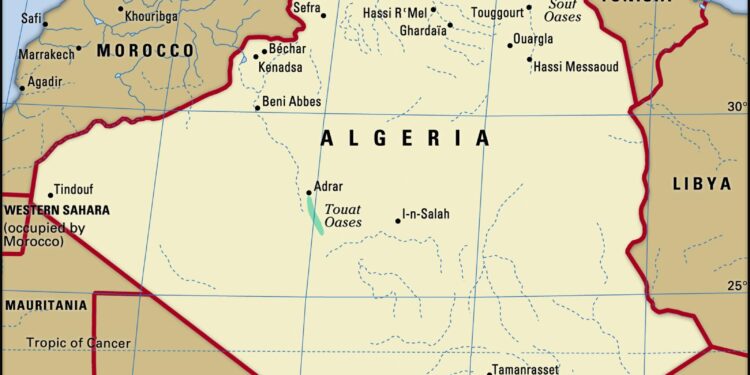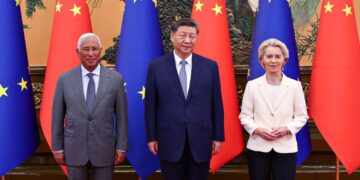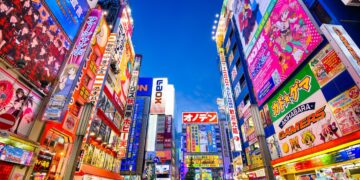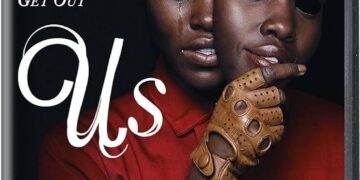Algerian Writer Boualem Sansal Faces Imprisonment Amid Rising Concerns Over Free Speech
In a notable turn of events within Algeria’s judicial and cultural spheres, the public prosecutor has demanded a decade-long prison term for acclaimed novelist Boualem Sansal. This development, reported by Morocco World News, emerges amid intensifying debates over freedom of expression in Algeria. Known for his candid critiques of the government and his influential literary contributions, Sansal has long been viewed as a thorn in the side of political authorities. His prosecution underscores pressing issues surrounding censorship, creative liberties, and dissenting voices within Algerian society—raising profound questions about civil rights and democratic values in the region.
The Legal Battle Against Boualem Sansal: A Reflection of Broader Expression Challenges
Boualem Sansal’s current legal predicament marks a critical moment in Algeria’s ongoing struggle with safeguarding intellectual freedom. The prosecutor’s call for a ten-year incarceration highlights escalating governmental intolerance toward outspoken critics. As an author whose works often dissect historical realities and challenge entrenched societal norms, Sansal embodies the risks faced by those who dare to question prevailing power structures.
This case resonates beyond one individual; it symbolizes wider concerns including:
- Protection of Free Speech: The urgent need to preserve spaces where dissent can be voiced without fear.
- Cultural Impact: Potential chilling effects on emerging writers hesitant to tackle sensitive or controversial topics.
- Global Advocacy: The role international human rights organizations play in defending artistic freedoms under threat.
The unfolding situation serves as an indicator of how national security priorities may be overshadowing fundamental freedoms—a trend that could stifle creative expression across Algeria’s literary landscape.
A Nation Divided: Debates Over Censorship and Artistic Liberty Intensify
The prosecutorial demand against Sansal has sparked widespread discourse both inside Algeria and internationally regarding state control versus individual rights. Many observers interpret this move as part of an expanding clampdown on free speech amid political sensitivities. Cultural leaders have vocally opposed these measures, emphasizing that unrestricted artistic expression is essential not only for democracy but also for societal progress.
Supporters argue that Sansal’s narratives confront vital social dilemmas—offering critical insights into challenges such as governance failures, historical amnesia, and social injustice prevalent in Algerian society today. In response to this controversy, calls have intensified for revisiting legal statutes governing artistic work with proposals including:
- Implementing explicit legal safeguards protecting artists from politically motivated prosecutions;
- Cultivating open dialogues between government officials and creative communities;
- Enhancing international solidarity efforts aimed at supporting persecuted intellectuals worldwide.
This episode thus acts as a litmus test reflecting broader tensions around censorship policies—and whether states should regulate or nurture cultural production within democratic frameworks.
Paving the Way Forward: Strengthening Protections For Algerian Intellectuals
Sustaining freedom of thought requires comprehensive reforms designed to shield writers like Boualem Sansal from arbitrary legal actions while fostering an environment conducive to creativity. Key recommendations include:
- Modernizing Legal Protections: Updating legislation so it aligns with global human rights benchmarks—explicitly guaranteeing freedom of speech without undue restrictions (see example from Cameroon reforms).
- Create Independent Monitoring Bodies: Establish autonomous institutions tasked with overseeing treatment toward authors ensuring accountability against abuses or censorship attempts.
- Civic Education Initiatives: Promote awareness campaigns educating citizens about their expressive rights alongside highlighting literature’s role in societal development.
A supportive ecosystem can further be nurtured through targeted measures such as grants encouraging politically uninhibited art creation; partnerships with international advocacy groups amplifying pressure against repression; plus regional forums uniting creatives and policymakers focused on collective protection strategies.
| Recommended Action | Expected Outcome |
|---|---|
| Legal Reform & Alignment With Human Rights Standards | Enhanced safeguards ensuring free speech protections |
| Independent Oversight Mechanisms | Greater transparency & accountability regarding treatment towards intellectuals |
| Public Awareness Campaigns | Empowered citizenry capable of advocating expressive freedoms effectively |
The Road Ahead: Implications For Civil Liberties And Artistic Expression In Algeria
The demand for a lengthy prison sentence targeting Boualem Sansal starkly illustrates ongoing frictions between state authority and personal liberties within Algeria’s evolving political context (see related geopolitical analysis here). This high-profile case draws attention not only domestically but also among global observers concerned about shrinking spaces for dissent across North Africa.
The outcome will likely influence future discourse surrounding permissible boundaries around political critique through literature—and whether Algerian courts uphold principles protecting free thought or reinforce restrictive norms curtailing civil liberties.
Boualem Sansal’s trial transcends personal stakes—it represents a pivotal moment testing how far governments tolerate opposition voices expressed via art amidst shifting socio-political landscapes worldwide.















